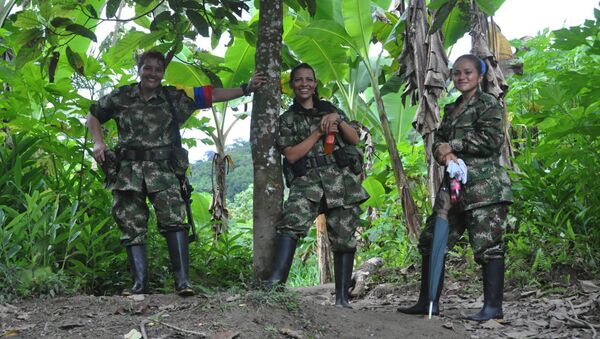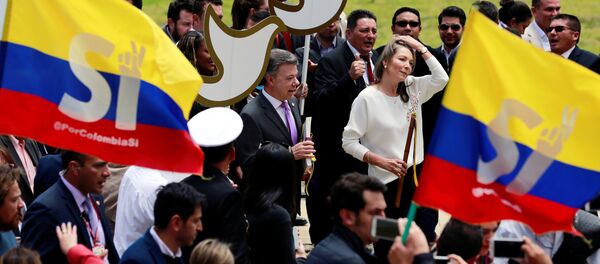Two days before the announcement, Ukrainian journalist Oleg Yasinsky, accompanied by two Russian documentary filmmakers, visited a FARC base in Colombia where he spoke with the fighters.
Despite the perception of Colombia as a conservative country with relatively strict gender roles, Yasinsky was struck by the large number of women represented among the troops, and shared his experiences with Sputnik Mundo in an exclusive interview.
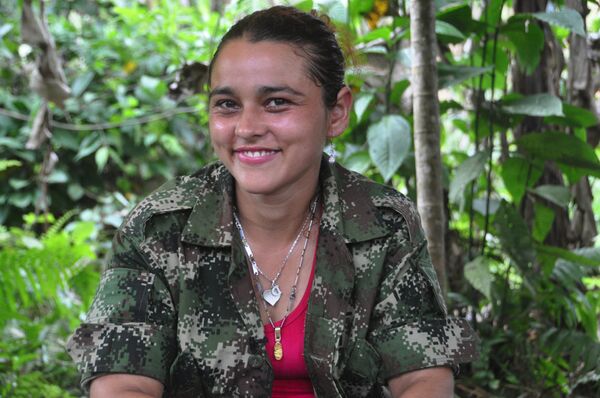
"Women comprise around 40 percent of the guerilla army," Yasinsky explained.
"FARC's constitution emphasizes equal rights and responsibilities for men and women."
"Of course, it would be naïve to say that sexism has completely disappeared from FARC ranks. However, there is a lot less among the guerillas, than in the rural areas of Colombia," Yasinsky said.

The reporter said that in the FARC there in freedom in relations between men and women, and every fighter has the right to choose whether to live together with their partner, or separately.
"The revolutionary morals held by the guerillas encourage romantic relationships, and do not welcome sexual promiscuity and hedonism," Yasinsky said.
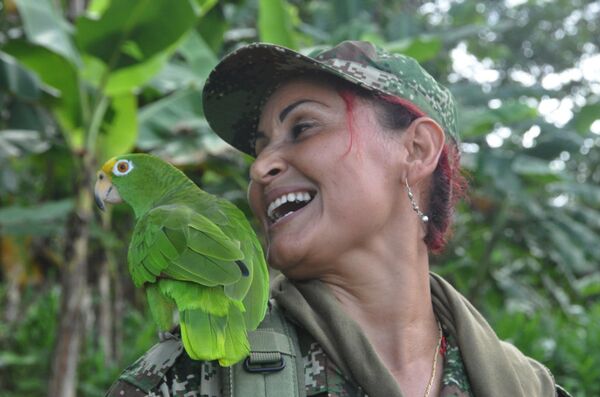
He explained that FARC provided an option for women and girls seeking to escape from sexual exploitation and prostitution. In Colombia the industry is under the control of drug traffickers, and human rights groups allege that some senior officers in the Colombian military are also involved.
"Mass participation in the guerilla movement is at once a response and alternative to reality," he said.
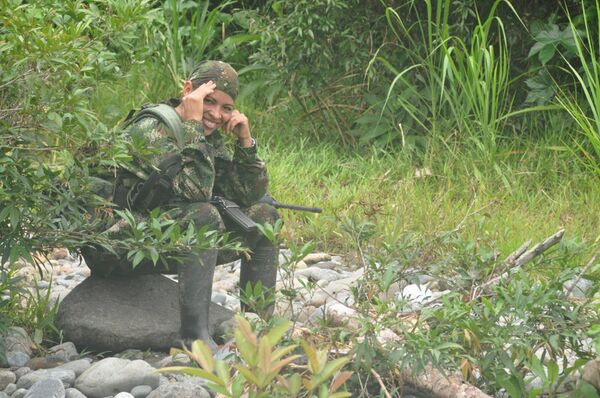
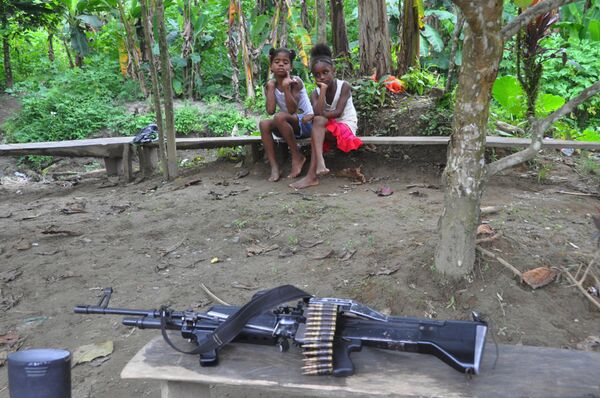
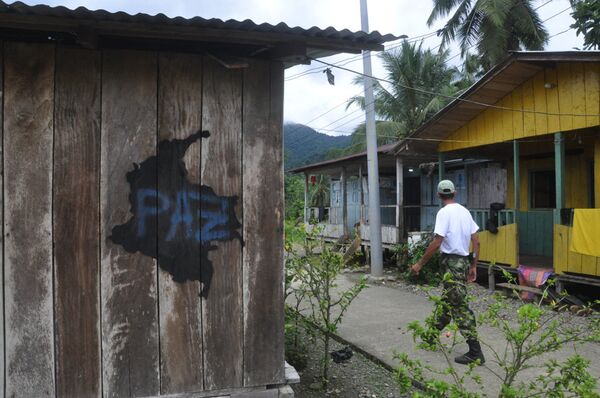
"We were there when the commander gathered the children and told them they had to leave as a result of the Havana obligations, they took it with bitterness and resentment. He had to spend a long time explaining that nobody is kicking them out, that they will maintain contact and friendship, that soon all guerillas will become civilians. He said that a revolutionary organization must be honest and comply with its obligations," Yasinsky said.
The ceasefire agreement between the FARC and the Colombian government agreed in Havana is set to be ratified on September 26 in the Colombian city of Cartagena. It will end 52 years of war during which an estimated 260,000 people were killed and millions internally displaced.
FARC is one of the world’s oldest Marxist insurgencies, formed in 1964 when it launched a war to overthrow the government of Colombia and install a revolutionary regime. Since fighting began, over 220,000 people have been killed, and another 5 million forced to abandon their homes.
The FARC was established in 1964 in the wake of Colombia's civil war (1948-1958), and along with the National Liberation Army (ELN), another smaller insurgent group, was excluded from a power-sharing agreement that ended the violence.
"Never again will parents be burying their sons and daughters killed in the war,'' FARC leader Timochenko told journalists when he announced the ceasefire in Havana last month.
"All rivalries and grudges will remain in the past," he said, while Colombian President Juan Manuel Santos also announced that his military will cease its attacks on the FARC.

